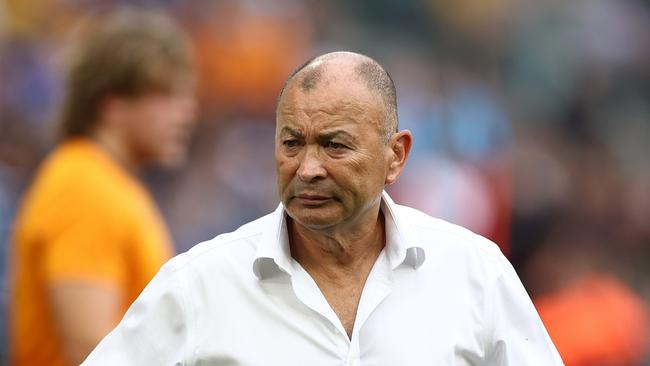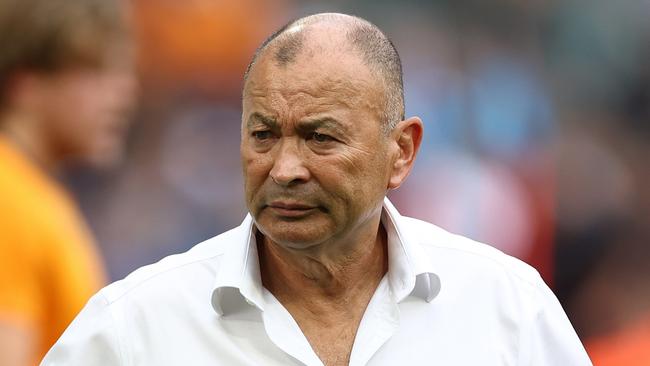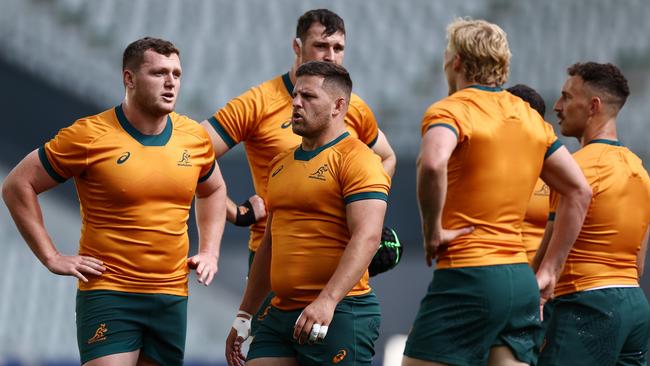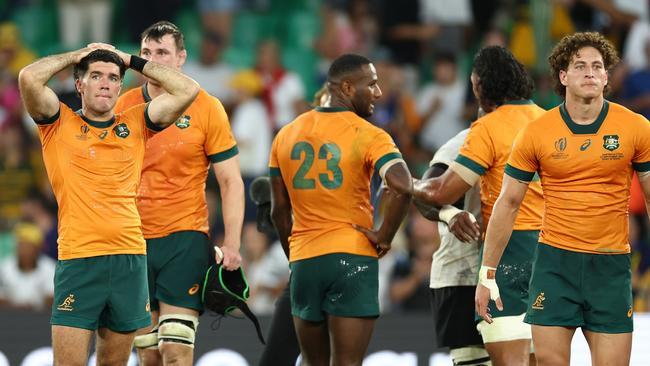Rugby World Cup: Wallabies must work overtime with sports psychologist ahead of Wales
Australia’s loss to Fiji is as devastating a loss in recent memory, which is why Wallabies great BRENDAN CANNON says the squad’s most important member won’t be in the actual team.

The most important member of the Wallabies team this week will be their sports psychologist.
Trying to digest the loss against Fiji and rise up for the challenge posed by Wales, in a match that will sink or save their World Cup hopes, will be an immense mental task for the players.
Having been coached by Eddie Jones, I can imagine how intense he’ll be this week as he attempts to avoid becoming the first Wallabies coach to get bundled out in the pool stages.
He is a hard taskmaster at the best of times, but following the defeat to Fiji, and the stakes for Wales, he’ll be turning up the dial like never before.
That will be uncomfortable for the players and his assistant coaches.
There will be plenty of staring at ceilings in their hotel rooms.
And confidence will be shaky.

Because as much as they’ll believe in their own abilities, they will be scarred by the results and internally questioning whether their plans can work.
They have lost six of seven games under Jones, and that sole win was against Georgia.
The 22-15 defeat to Fiji last weekend will have done the most damage, because the Wallabies would have felt that the losses in the lead-up to the World Cup were building up to special performances at the tournament that would validate all their hard work.
The opposite occurred. Australia seemed passive, overwhelmed, out-thought and when the game was on the line, unsure of what needed to be done.
The mental wounds from that can’t be underestimated.
And that’s why the Wallabies psychologist has the greatest role to play this week.
Jones has brought in Corrine Reid, a West Australian professor who he used while coaching England.
She has already played a big role in getting Wallabies players ready for the World Cup, judging by their public comments of her work within the camp a couple of months ago.
This is a bigger challenge altogether.

As much as sport is about moving on to the next week and letting results stay in the past, athletes are human and as vulnerable as anyone else to allowing creeping thoughts of failure linger in the mind.
I was playing for the NSW Waratahs in 2002 when we got beaten 96-19 by the Crusaders.
We turned up to training on Monday, and our coach Bob Dwyer said: “Forget what happened on the weekend. Don’t worry about it, all of our focus is on the Brumbies in the semi-final. If anyone even mentions last week, they’ll be doing extras.”
But how do you forget a result like that?
We didn’t talk about it at training, but there was no shaking it from our minds.
We lost 51-10 to the Brumbies the next week, our season was over, and in hindsight we should have addressed that monumental loss to the Crusaders and tried better to process the scars.

This is where the Wallabies find themselves.
They’re coming off a devastating loss, and know if they lose on Monday they’re out of the World Cup.
Working out the demons will be the most important factor in how they perform against Wales.
If I was talking to them, I’d say: “Put down your phones, switch off from social media, pick up your Wallabies kit, look at it, focus on the emblem, and remember why you play rugby.
“You play rugby to have fun and know that everyone is behind you. Go out and have a blast, do it with a smile on your face, and know that we’re behind you all the way.”





To join the conversation, please log in. Don't have an account? Register
Join the conversation, you are commenting as Logout